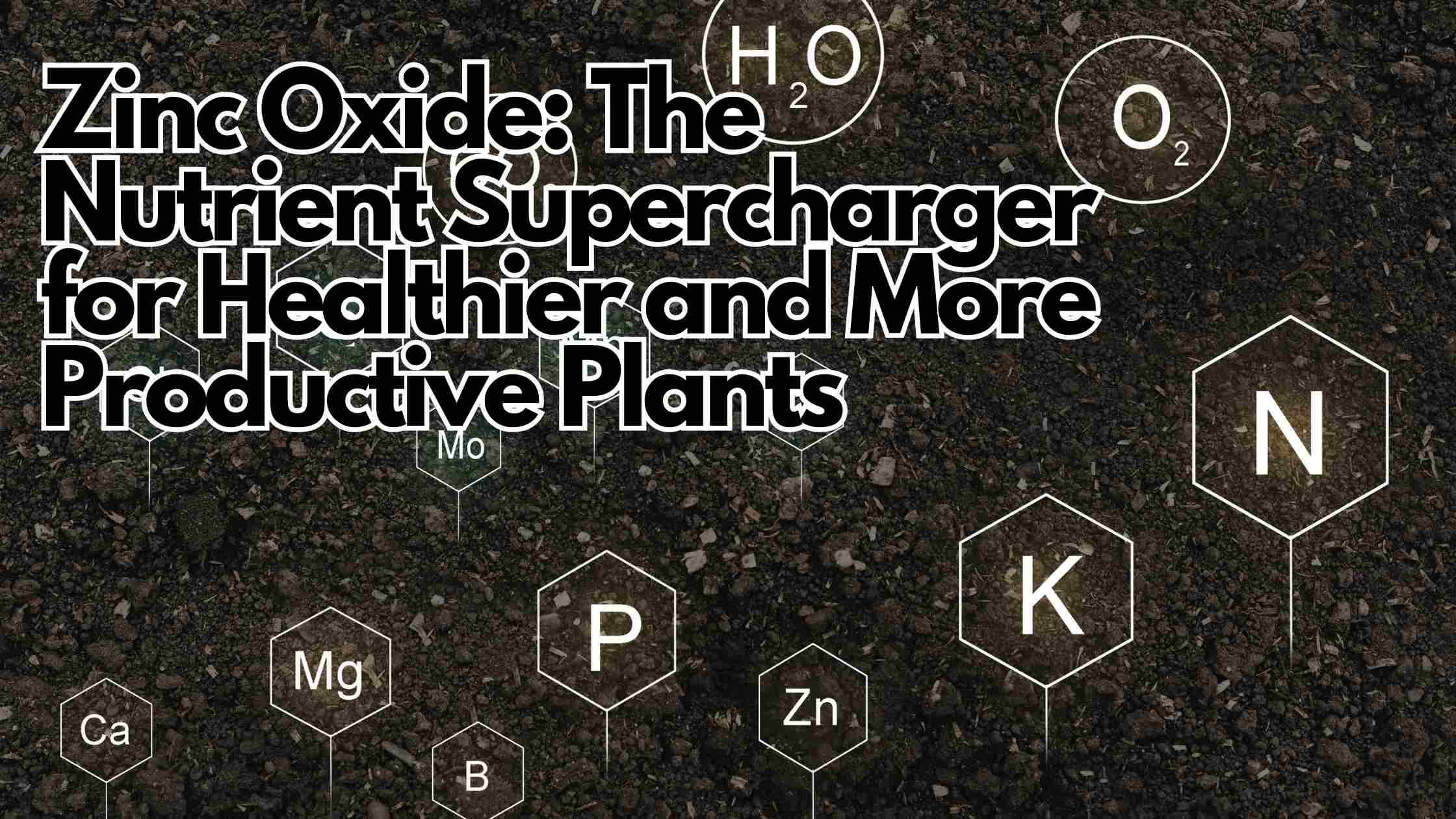
Introduction:
Plants require a diverse range of nutrients to thrive and achieve optimal growth and productivity. Among these essential nutrients, zinc plays a crucial role in various physiological processes within plants. Zinc oxide, a powerful and highly bioavailable source of zinc, has emerged as a nutrient supercharger that promotes the health and productivity of plants. In this article, we will explore the benefits of zinc oxide in plant nutrition and its applications in agriculture.
The Role of Zinc in Plant Nutrition:
Zinc is an essential micronutrient for plants, playing a vital role in enzyme activation, protein synthesis, and hormone regulation. It is involved in various metabolic processes, including photosynthesis, root development, and nutrient uptake. Zinc deficiency in plants can lead to stunted growth, reduced crop yield, and increased susceptibility to diseases. Recognizing the importance of zinc in plant health is crucial for sustainable agriculture.
Zinc Oxide: A Superior Source of Zinc:
Zinc oxide stands out as a highly bioavailable and stable form of zinc for plants. Its superior solubility allows for efficient absorption and utilization by plant roots. Compared to other zinc sources, zinc oxide offers long-lasting and sustained nutrient availability, ensuring continuous zinc supply throughout the plant’s life cycle. This makes it an excellent choice for addressing zinc deficiency and optimizing plant nutrition.
Benefits of Zinc Oxide in Plant Health:
The application of zinc oxide in agriculture brings a multitude of benefits to plant health and productivity. Firstly, zinc oxide enhances nutrient uptake and assimilation, ensuring that plants can efficiently absorb and utilize other essential nutrients. Additionally, it promotes root development and improves nutrient absorption, leading to stronger and healthier plants. Zinc oxide also plays a vital role in strengthening plant immunity, reducing susceptibility to diseases, and enhancing overall disease resistance. Furthermore, it aids in plant fertility and reproductive processes, contributing to improved flower formation, fruit set, and seed production. Lastly, zinc oxide stimulates photosynthesis and chlorophyll production, resulting in healthier foliage and optimized energy production in plants.
Applications of Zinc Oxide in Agriculture:
Zinc oxide can be incorporated into various agricultural applications to maximize its benefits. It is commonly used in fertilizer formulations to ensure adequate zinc supply to plants. These formulations can be applied directly to the soil or incorporated into granular fertilizers for targeted nutrient delivery. Zinc oxide can also be used in foliar sprays, allowing for quick and direct absorption by plant leaves. Moreover, it finds application in hydroponic systems, providing readily available zinc to plants grown in soilless environments.
Case Studies and Success Stories:
Numerous case studies and success stories highlight the positive impact of zinc oxide in agriculture. Farmers and agricultural experts have reported significant improvements in crop quality, yield, and profitability after incorporating zinc oxide into their cultivation practices. Crops such as cereals, legumes, fruits, and vegetables have shown increased nutrient uptake, enhanced disease resistance, and improved overall plant vigor. Testimonials from farmers who have witnessed firsthand the benefits of zinc oxide emphasize its role in optimizing plant health and achieving better yields.
Best Practices for Using Zinc Oxide:
To make the most of zinc oxide in agriculture, it is essential to follow best practices. Dosage recommendations and application guidelines should be adhered to, ensuring optimal zinc levels without causing imbalances or toxicity. Timing and frequency of zinc oxide application should align with plant growth stages and nutrient requirements. It is crucial to handle zinc oxide safely and consider environmental considerations, such as runoff and impact on water systems.
Future Trends and Innovations:
Ongoing research and development continue to explore the potential of zinc oxide in agriculture. Advances in nanotechnology hold promise for enhancing zinc oxide delivery to plants, improving its effectiveness and efficiency. The use of precision agriculture techniques, such as soil
